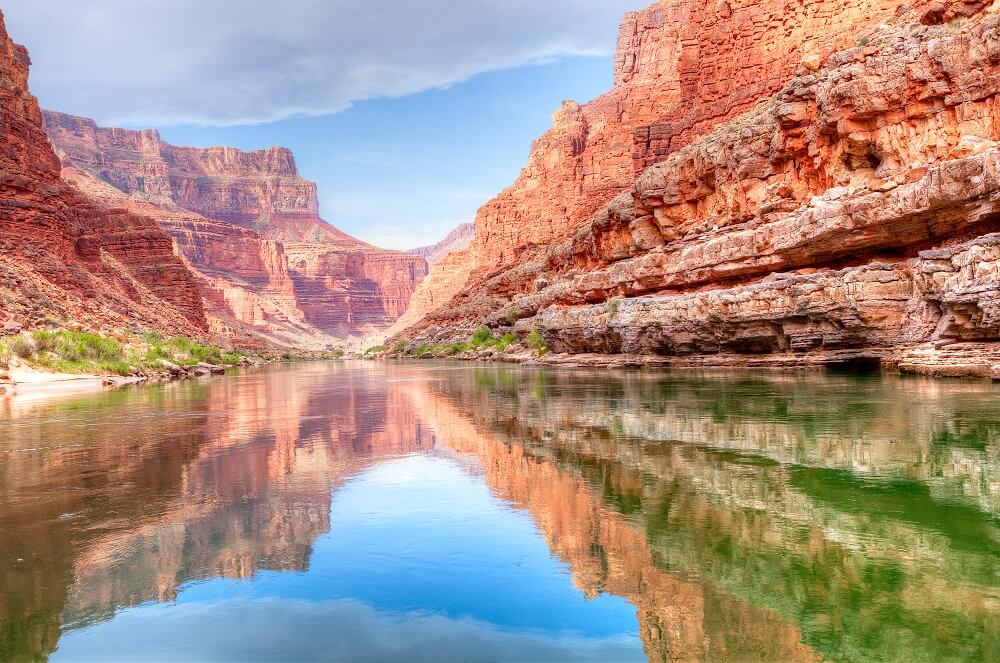Federal Overtime for Wilderness may put the Outdoors Out of Business.

When President Obama signed the new overtime law into place with the logo “Give America a Raise” he may have signed the wilderness into bankruptcy. He created a large “catch all” law and ignoring the uniqueness of each industry. Thus, he may have made it impossible for outdoor excursion companies to remain in business. Overtime for wilderness companies mean that they have to juggle employee hours on excursions that often last for days or weeks at a time.
The new overtime law makes it so anyone who makes under $47,476 a year will now be paid overtime for time worked over 40 hours a week. The new federal minimum wage raises the wages to $10.10 for any government contractors, federal workers, or those operating on federal lands. This applies to contractors who use Federal lands for their business. Among those businesses included would be outfitters, wilderness guides, and other who explore the great outdoors.
This creates an issue for many outer door businesses. The reason is because in Federal Lands, companies are already prohibited from charging above a certain amount for services. With an increase in expenses, it may translate to companies juggling the impossible task of managing higher expenses than allowable income. Federal overtime for wilderness companies may mean that those companies have to go negative to provide a tour. And, consequently, going out of business or stopping all services on Federal Land.
Outdoor jobs are often about lifestyle
Unlike other industries, outfitters often work around the clock while giving wilderness tours. Wilderness guides often take tours for days up to a couple of weeks at a time. Wilderness Adventures offers teen camps across the United States from Hawaii to Alaska to New York. Tour guides take teens on camping, fishing, hiking, canoeing and other outdoor adventures. Although guides working often make about $1800 a summer, Wilderness Adventures often has guides that return year after year. For the guides it’s about the lifestyle of a job they love and making a difference in the lives of youth.
Mike Cottingham, the owner of Wilderness Adventures says that he’d have to triple or quadruple wages to stay compliant with the new minimum wage and overtime laws. That would result in a large increase in fees and would make it more difficult for non-wealthy kids to go to camp.
Other outfitters take people hiking, camping, fishing, climbing and rafting through National Parks. Additionally, many ski lodges are located on National Forest land. Many of those outfitters think they will have to rethink their business model with the advent of these new overtime laws.
Choices with the new Overtime rules
Jack Wise owns a Wildwater rafting company. He didn’t hear about the changes until he got an email from the local Forest Service. “We were given the choice of not opening our business and not fulfilling our reservations from our clients, essentially going out of business. . .or signing the permits with a $10.10 requirement,” explained Wise. “The reality is, in our industry- as in most outdoor guided industries, whether it’s climbing, or cycling or whitewater rafting- it’s a certain amount about the lifestyle. The people who tend to be guides, whitewater guides, rock-climbing guides are into the pure enjoyment of taking people outdoors.”
This appears to be true in the Grand Canyon where outfitters never have to advertise for job openings. The jobs require several years of apprenticeship and are fiercely competitive.

The Outfitter Industry fears that overtime laws for Wilderness Tours may make expenses too high
Federal Overtime for Wilderness is a complex issue
Overtime laws for outdoor guide companies becomes more complex when companies attempt to figure out how to pay employees. Figuring out when employees are on the clock or when they are on call can be difficult. Companies don’t want to pay guides overtime for sleeping during the tours.
Additionally many companies have previously not valued the other freebees of the job. They haven’t tracked tips or gratuities, meals, leftovers, or free sleeping arrangements between tours. All of these things will need to be valued and tracked according to federal rules so that companies can determine the gap between pay and the new laws.
A cagey guide on the Grand Canyon can live almost entirely rent-free, sleeping in the warehouse and eating the leftover food from the tours. Outside online reported that one baggage, who wanted to remain anonymous said; “Considering it would cost me $1,200 to do a private Grand Canyon trip, baggage boating is one way for me to experience the canyon.”
Lacking the exemption that other industries have
As a general rule, employees that lie on the job are exempt from overtime requirements. This includes firefighters and home health care workers. Additionally seasonal and recreational businesses like ski resorts are typically also exempt. However, getting a clear definition can be difficult and makes it risky for companies to assume exemption. Plus, companies that operate year round, like ski resorts that keep their lifts open in the summer, no longer qualify for the exemption. Many wilderness companies and outdoor recreation businesses fear that the new labor laws will force them out of business.
The right tools for compliance
For many outdoor companies, tracking time can be complex. Guides are moving through the wilderness and yet need to record time working and off the clock. They also need to track gratuities. SwipeClock offers an array of timekeeping solutions including GPS time clocks that allow for remote login. Payroll advisors can contact SwipeClock to find out how to help their clients.
Written by Annemaria Duran. Last updated October 12, 2016
Simplify HR management today.
Simplify HR management today.
Your Guide to GPS Time Tracking (Geofencing)
Updated March 19, 2024 When your business has employees working remotely or at various job sites, time tracking can become a challenge, particularly if the company relies on physical clocks for punching in and out. But offering a mobile app or web-based tracking solution can cause some concerns. You might wonder whether employees are clocking…
Read MoreThe Employer’s Guide to Federal & State Meal/Rest Break Laws [See all 50 State Laws Here]
Updated January 23, 2024 Under the federal Fair Labor Standards Act (FLSA), employers are not required to provide meal or rest break periods to employees. However, some states do have laws in effect dictating when and how often an employee should receive a break, as well as whether these breaks are paid or unpaid. In…
Read More




